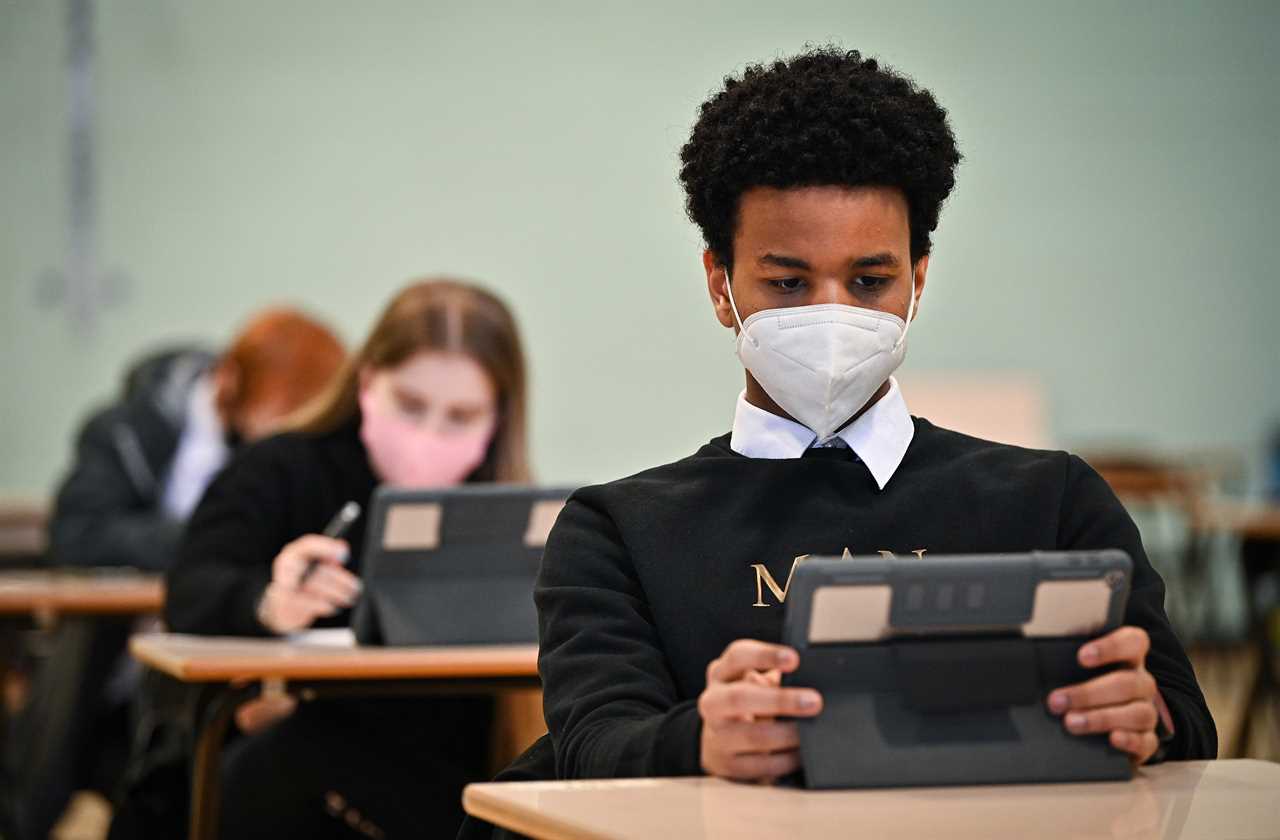SCHOOLS could be forced to break up early for Christmas with a surge in Covid cases already wreaking havoc in classrooms.
With more and more staff catching the virus, thousands of kids have already been told to switch to remote learning.

And with two cases of the “horrific” Omicron variant confirmed in the UK, parents now fear schools could pack up early next month if the super strain causes an explosion of infections.
Kids are already being sent home from classrooms and learning moved back online due to spiralling case numbers.
St Mary’s Church of England Primary in Hereford and Darwen Aldridge Enterprise Studio in Lancashire have shut for at least a week, with other schools in Buckinghamshire, Middlesborough and West Sussex all closing for at least a day.
The Department for Education has told headteachers that sending large groups of kids home should be a “last resort” in “extreme cases”.
It comes after secondary schools were told they should test ALL pupils on site after the Christmas break to stop a rise in Covid cases.
In an email to headteachers, the DfE said testing students on their return to the classroom in January “will help reduce transmission after a period of social mixing” over the holidays.
But a school leaders’ union has accused the government of forgetting that headteachers are educators “rather than an ad hoc branch of the NHS”.
The Association of School and College Leaders (ASCL) has said it is not reasonable for the authority to impose such a considerable public health task on schools “with minimal support”.
Secondary schools have been told to order sufficient testing kits by Tuesday to ensure each pupil can take a rapid lateral flow test on-site when they return as fears about the new super-mutant strain Omicron grow.
An email from the DfE to school leaders said: “We would like all secondary schools to prepare to test their pupils once on-site on return in January.
“We understand that this is a significant additional ask but testing continues to play a vital role in keeping Covid-19 out of schools.”
Secondary schools have also been asked to order home testing kits so pupils can continue to test.
Julie McCulloch, director of policy at ASCL, has hit out at the government’s request, saying it “does not fall within the remit of education”.
“We recognise the importance of Covid testing to reduce the risk of transmission of the virus, but it is not reasonable for the government to once again impose this considerable public health task on schools with minimal support,” she said.
“The role of schools should be limited to providing a space for test centres and communicating with students. But the government expects them also to handle the logistics of staffing and setting up testing stations.
“It seems to have forgotten that school leaders are educators rather than an ad hoc branch of the NHS.”
YULE BE FINE
Despite panic over the Omicron variant, Sajid Javid has insisted Britain is “nowhere near” full lockdown and Christmas will be “great”.
He told Sky’s Trevor Phillips on Sunday: “We know now those types of measures do carry a very heavy price, both economically, socially, in terms of non-Covid health outcomes such as impact on mental health.
“So, if one was to make decisions like that they would have to be done very, very carefully and we’re not there yet, we’re nowhere near that.”
He added that people should plan for Christmas as “normal”.
“I think it’s fair to say that the nature of this pandemic is it would be irresponsible to make guarantees,” Mr Javid said.
“As for Christmas, I think people should continue with their plans as normal for Christmas, I think it’s going to be a great Christmas.”
Meanwhile, compulsory mask-wearing is set to return next week in a bid to save Christmas from a super-mutant coronavirus.
Boris Johnson ordered the move after at least two cases of the fast-spreading Omicron variant were found in the UK.
He also urged people to get booster jabs, saying: “It’s more vital than ever.”
Mask-wearing will again be compulsory in shops and buses, trains and taxis in England from Tuesday.
Overseas travel and self-isolation rules have been tightened after the first two cases of the super-strain were detected in Britain.






